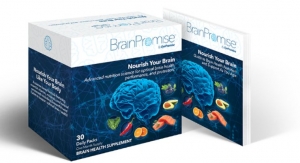Lisa Schofield03.01.05
Perhaps one of the scariest aspects of getting older is the loss of memory and cognitive function, and the onset of dementia associated with Alzheimer's. We cherish our abilities to control the mental perceptions derived from our environment, and subsequently shape and incorporate those perceptions into our own realities. When this ability is lost, an unknown world full of frights yawns open.
According to board-certified neurologist David Perlmutter, MD, medical director of the Perlmutter Health Center in Naples, FL, and author of The Better Brain Book, "Cognition refers to the sum of a variety of thinking processes including abstract reasoning, visual and auditory memory, interpretation and calculation. Memory is a discrete subpart of cognitive function that is sub served by specific anatomical areas of the brain. For example, we know that abstract reasoning involves wide areas of the frontal lobe while short-term memory is located in a specific structure, the hippocampus, a small area in the temporal lobes."
The nutraceuticals industry continues to validate a handful of viable materials that can be used in formulas for individuals concerned about preserving the structural health of their brains and associated cognitive agility as they age gracefully. Although aging has been fingered as the major culprit, there are several factors that contribute to potential degradation of brain function, hastening impairment of cognitive function.
Factors identified as contributing to the aging brain include depletion of particular neurotransmitters, hardening of the arteries contributing to poor cerebral blood flow, accumulation of toxic elements including free radicals and lipid insufficiency (docosahexaenoic acid and phosphatidylcholine, among others).
Poor dietary and lifestyle habits, combined with personal stress mismanagement, unleash a torrent of biochemicals that destruct, over time, certain activities and functions in the brain and its metabolism of nutrients, contributing to a variety of memory and cognitive problems.
According to Paula Gaynor, PhD, associate director of nutrition for Lonza, Allendale, NJ, aging induces several structural and functional changes in the brain. An imbalance of changes caused by increased production of free radicals and decreased functional efficiency of the antioxidant system has been suggested to be one of the primary factors contributing to the aging process. Memory loss is accompanied, but not necessarily caused, by accumulation of oxidative damage to lipids, proteins and nucleic acids and by mitochondrial decay, all of which can disrupt normal neuronal function. Neurotransmitters also have a key role to play in brain health, particularly acetylcholine. Age-related decline in cholinergic function is thought to be partially responsible for short-term memory disorders through aging. "In Lonza's viewpoint, effective brain health supplements must be able to support the brain by addressing one or more of the previously mentioned physiological processes," she said.
"The predominant leading field of brain health should be directed toward cholinergic function," said Leo Cullen, executive vice president of Buckton Scott Nutrition, which represents Israel-based Enzymotec. "It is well established that its loss in the neocortex and hippocampus correlates with the symptoms of Al�zheimer's disease. This neurodegenerative disorder accounts for most of adult-onset dementia cases, in as much as 1-4% between 65 and 70 years and is higher than 20% at ages 85-90 years."
Stress contributes to the accumulation of toxic chemicals in the brain. Glutamate-induced oxidative stress and toxicity represents a major event in stroke and several other neurodegenerative disorders, according to Weng-Hong Leong, vice president, Carotech, Edison, NJ. "We have presented the first evidence in the Journal of Biological Chemistry demonstrating that in neuronal cells nanomolar concentrations of tocotrienol but not alpha-tocopherol, block glutamate-induced death by suppressing early activation of the enzyme c-Src kinase."
Stress can also cause the sympathetic nervous system to release epinephrine and norepinephrine, that can act within seconds, as well as a number of glucocorticoids, including cortisol, that support this destructive activity over the course of minutes and hours, points out Scott Hagerman, president of Chemi Nutra, White Bear Lake, MN. Elevated cortisol is very destructive, as cortisol is a potent catabolic stress hormone that breaks down the body's muscle protein into amino acids, which are converted to glucose in the liver. Research has shown that prolonged exposure to elevated cortisol levels disrupts the energy stores of neurons, and can lead to neurological damage in the hippocampus region of the brain. This can contribute to accelerated brain aging and to further loss of valuable cognitive functions.
Ram Chaudhari PhD, senior executive vice president and chief scientific officer of Fortitech, Schenectady, NY, asserts, "The well-protected but delicate human brain is constantly under attack. Stress, environmental pollution, internal toxicity and lack of proper diet and nutrients all take their toll. The right nutrients can help, particularly those that feed the billions of cells, which are part of the central nervous system and promote brain metabolism by restoring phospholipid content in the brain and regulation of neuron membrane excitability. Such nutrients as vitamin C, vitamin E, CoQ10, beta-carotene and mixed tocopherols can assist here."
Expressing similar thoughts was Neil Sullivan, director of sales for Kyowa Hakko USA, Inc., New York, NY, who said, "The human brain is a delicate organ of the body, constantly being attacked by various factors of our lifestyle, including environmental pollution, internal toxicity, stress and a lack of proper diet and nutrients." Citicoline, he points out, may help combat the ravages of these effects by stimulating the nervous system process to maintain optimum sustainability to think cognitively and retain our memories. "Many kinds of molecular events are involved in the process of cognitive function," he adds. Citicoline is believed to stabilize the membranes of neuronal cells through the metabolic pathway, and inhibit the formation of cytotoxic free fatty acids. Scientific research demonstrates that citicoline consumption promotes brain metabolism by restoring phospholipid content in the brain and regulation of neuronal membrane excitability. Citicoline also influences the mitochondria or energy factories of the brain cells.
"An ultimate outcome of any form of stress to the central nervous system, e.g. psychological, chemical, biological or physical, is oxidative damage to the brain cells and structures," explained Vladimir Badmaev, MD, PhD, vice president, medical and scientific affairs, Sabinsa Corporation, Payson, UT. "Therefore a proper combination of antioxidants that will exert the specific and synergistic action protecting central nervous system from stress should be the guiding rule of any dietary formula developed for healthy brain function. For example, organic selenium has emerged as a key support to selenium-dependent enzymes such as glutathione peroxidase and thioredoxin reductase, which contribute to healthy brain functions. Selenium depletion has been associated with decreased activities of selenium-dependent enzymes in the brain and enhanced brain cell loss."
Dr. Badmaev also pointed to insufficient blood circulation as a contributor to brain degradation. A key to achieving optimal brain health lies in the prevention of the age-related loss of adaptability of neurons and neural connections (synapses) that carry the cognitive impulses, e.g. memory im�pulses. This loss of adaptability (neuronal or synaptic plasticity) may be due to wear and tear on the nervous system, compounded by its poor regenerative ability and poor blood circulation, which intensifies with aging. Poor blood circulation in the brain is usually caused by atherosclerosis, which affects the brain's blood vessels-similar to the way atherosclerosis affects the coronary arteries. In fact, atherosclerosis of the brain vessels can over time lead to minute infarcts (blockage of the vessels), which cause neural cell death. This process, when multiplied, leads to a clinical condition known as multiple infarcts dementia. Therefore the same risk factors that deteriorate the cardiovascular system, i.e. obesity, diabetes, high blood cholesterol, physical inactivity, smoking cigarettes and alcohol abuse, also contribute to brain health deterioration.
Intimately intertwined with the causation of cerebral insufficiency is a lifetime of poor diet. In the specific case of the brain, inadequate long-term consumption of omega 3 fatty acids, notably docosahexaenoic acid (DHA), has been shown to contribute to cognitive decline. Ideally, consumption of coldwater fish thrice weekly would ensure the structural health of the brain, but very few people make this a habit, especially for the long-term.
"It is widely recognized that omega 3 fatty acids are key to maintaining brain health," said Beth Parker, public relations manager, Martek Biosciences Corp., Columbia, MD. Even the Alzheimer's Foundation of America recommends eating "cold water fish that may contain beneficial omega 3 fatty acids" as a part of a brain-healthy diet.
Several studies have singled out DHA as being one the most important, if not THE most important, omega 3 fatty acid for maintaining optimal brain health. The brain tissue is particularly rich in DHA, but over time is depleted because of its constant absence in the daily diet-especially for Americans. "The most reliable way of providing DHA to the brain is by eating a diet rich in preformed DHA. However, foods with the highest content of preformed DHA, namely organ meats and fish, are consumed at very low frequency in the standard American diet, placing many Americans at risk for sub-optimal brain health," Ms. Parker said.
Douglas Bibus, PhD, of The Holman Center for Lipid Research, and Lipid Technologies, LLC, in Austin, MN, agreed. "The brain contains the highest concentration of DHA in the body," he said. "Multiple studies have shown that DHA's presence is essential for optimal brain function yet the American diet is woeful in its omega 3 content, while at the same time copious in its omega 6 content."
Dr. Bibus continued, "Our own laboratory at the University of Minnesota has examined thousands of patients with neurodegenerative disorders such as Alzheimer's and Parkinson's disease and we have found that most patients exhibit significant deficiencies in DHA and other omega 3 fatty acids. Whether this 'deficiency' of DHA is a result of the disease or contributing to its morbidity remains speculation, but it certainly signifies a key relationship between disease, function and nutrient."
Diet is one thing, but increasing blood flow ensures nutrients are delivered effectively throughout the brain. Vinpocetine, according to Gilbert Gluck, founder and CEO of Irvine, CA-based Cyvex Nutrition, has been shown to be a powerful memory enhancer that increases blood flow and glucose metabolism in the brain. A single dose of BioVinca vinpocetine increases the efficiency of all brain cells, causing a marked improvement in brain activity. This increase in activity has been shown to increase short-term memory in healthy volunteers aged 25 to 40.
DHA, phospholipids, tocotrienols, CoQ10 and a handful of other nutrients can compose effective brain health formulas. Consumers, however, need to be educated that incorporating a brain health formula is a long-term proposition. In other words, they won't feel immediate gratification, but will be ensuring continuous nourishment of the brain, thus prolonging brain homeostasis. What follows is some of the latest scientific developments with respect to brain health ingredients.
According to a study performed at Cornell University, an apple a day may keep Alzheimer's at bay. The study, which appeared in the December 1st edition of Journal of Agricultural and Food Chemistry, exposed groups of isolated rat brain cells to varying concentrations of either quercetin (abundant in apples) or vitamin C. Those cells treated with quercetin had significantly less damage to both cellular proteins and DNA than those treated with vitamin C, according to lead author C.Y. Lee, professor and chairman of the department of Food Science & Technology at Cornell University. "On the basis of serving size, fresh apples have some of the highest levels of quercetin when compared to other fruits and vegetables, and may be among the best food choices for fighting Alzheimer's," he said, adding, "Eating at least one fresh apple a day might help."
In a study appearing in the December 7, 2004 online edition of the Journal of Biological Chemistry, researchers at the University of California, Los Angeles, concluded that curcumin (the popular Indian curry spice) is more effective in inhibiting formation of the protein fragments than many other drugs tested as Alzheimer's treatments. The re�searchers found that the low molecular weight and polar structure of curcumin allow it to effectively penetrate the blood-brain barrier and bind to beta amyloid, which form the disease-causing plaques.
According to Dr. Badmaev of Sa�binsa, the UCLA Alzheimer's Disease Research Center has initiated human clinical trials to further evaluate curcumin's protective and therapeutic effects. An upcoming human study will examine the safety and tolerability of two different doses of curcumin C3 complex. Blood and cerebrospinal fluid (CSF) tests will be used to examine how curcumin is absorbed in the body. Participants will also be tested to determine the potential effect of curcumin on cognition, behavior and daily function in patients with mild to moderate Alzheimer's disease. "Interestingly, the prevalence of Alzheimer's a�mong adults ages 70-79 in India, where dietary consumption of curcumin is high, is four times less than the rate in the U.S.," he said.
A clinical trial to determine whether an antioxidant combined with high-dose B vitamins is superior to standard B vitamin supplements in slowing the rate of cognitive decline in Alzheimer's patients commenced in January. According to study sponsors, Cobalz Limited of the U.K. and its U.S. partner Pamlab, high blood levels of homocysteine are a risk factor for stroke and dementia, including Al�zheimer's disease. Raised levels damage nerves and blood vessels and lead to a loss of brain tissue in patients. Dementia is also associated with free radicals that oxidize and damage an enzyme that breaks down homocysteine.
A report appearing in the January 2004 edition of Archives of Neurology found that individuals whose diets had the highest levels of vitamins C and E had a dramatic reduction in Alzheimer's risk, according to Dr. Perlmutter. "Coenzyme Q10, another antioxidant, also shows promise in maintaining brain health, as well as slowing the progression of neurodegenerative diseases. A recent study published in Neurology found CoQ10 to be effective in slowing cognitive decline in Parkinson's patients by more than 40%."
"A number of studies indicate that niacin (vitamin B3) plays important roles in DNA synthesis and repair, and acts as a potent antioxidant in brain mitochondria," said Ms. Gay�nor. In a recent large prospective clinical study conducted among people over 65 in Chicago, IL, an inverse association was observed between the incidence of Alzheimer's disease and the dietary intake of total niacin (from food and supplements). The re�searchers concluded that this study, if confirmed by further research, could have substantial public health implications (J. Neurol. Neurosurg. Psychiatry, 2004).
Carotech's Mr. Leong reports that the National Institutes of Neurological Disorders and Stroke of the National Institute of Health (NIH) has awarded in excess of $1 million to investigate how tocotrienol helps to protect against inducible neuronal cell death. This is the first-ever NIH-funded study on tocotrienol. The research will be carried out by Professor Chandan K. Sen, director of the Laboratory of Molecular Medicine at The Ohio State University Medical Center.
A rather new brain nutrient, from Chemi Nutra, is AlphaSize Alpha-Glyceryl Phosphoryl Choline, or A-GPC, which has been shown in research studies to increase acetylcholine, the brain's most important neurotransmitter, according to Mr. Hagerman. A-GPC is currently used in Europe as a nutrient to address a variety of cognitive indications, in�cluding Alzheimer's disease, and to optimize neurological and muscle response in athletes.
A diet high in fish and soy was noted in a recent study to increase the production of insulin-degrading enzyme (IDE). Researchers at the University of California, Los Angeles used human tissue to identify a shortfall of IDE in the brains of Alzheimer's patients. The study, which appeared in the December 9th issue of the Journal of Neuroscience, described the re�searchers' finding of a cause-effect relationship between insulin signaling and increased IDE production. The authors said, "The findings for the first time explain the association between insulin-resistant type 2 diabetes and Alzheimer's disease, and demonstrate the ability to manipulate levels of the protective IDE protein through diet."
A study in the December issue of American Journal of Clinical Nutrition looked at the impact of nutrients on cognitive function over time. It was conducted in subjects born in 1936 whose mental ability was tested in 1947. The subjects were followed up in 2000�2001, at which time cognition, diet, food supplement use and risk factors for vascular disease were assessed. In a nested case-control study, fish oil users were matched with nonusers, and cognitive function was related to erythrocyte omega 3 fatty acid composition. According to researchers, childhood intelligence quotient (IQ) did not differ significantly by category of food supplement use (i.e., none, fish oil, vitamins, and other). At the age of 64, however, cognitive function was higher in food supplement users than in nonusers before adjustment for childhood IQ. After adjustment for childhood IQ, digit symbol (mental speed) test scores were higher in food supplement users. Fish oil supplement users also consumed more vitamin C and vegetable and cereal fiber than did non-supplement users. Researchers concluded that omega 3 fatty acids could improve retention of cognitive function in old age.
Mr. Hagerman reports that currently Chemi Nutra's SerinAid phosphatidylserine (PS) is being evaluated in a research study at the University of Guadalajara in Mexico. Specifically, it involves PS and its ability to reduce the incidence of the memory loss that accompanies hormone replacement therapy (HRT) in women. The one-year study will conclude in May.
"The efficacy of omega 3 brain lipid conjugate on improving central cholinergic function is well documented," said Mr. Cullen. Recent studies conducted by Enzymotec demonstrated-in animals and humans-that long-term administration of omega 3 brain lipid conjugate resulted in significantly reduced age associated memory impairment symptoms.
The primary focus for combination products at Science & Ingredients, notes company president Peter Rohde, is to use the ortho-molecules PS and GPC at potent levels together with DHA and eicosapentaenoic acid (EPA). "We have provided product for a clinical trial utilizing a combination of PS and DHA," he offered. "For this we are using our new liquid 40% PS and our new fish oil concentrate with 50% DHA. We expect the results will be available later this year."
Many studies have shown that the enzyme acetyl cholinesterase contributes to the onset of Alzheimer's disease, and thus the ability to inhibit the enzyme's activity has become accepted as a means of possible prevention of further deterioration. Ken Hassen, PhD, chief operating officer for Sigma-tau HealthScience Inc., Gaithersburg, MD, notes that findings from a team of UK-based researchers recently revealed that green and black tea inhibits human acetyl cho�linesterase (Phytotherapy Research, August 2004). "Current investigations into Alzheimer's disease seek means to inhibit the enzyme acetyl cho�linesterase. Means towards the prevention of beta-amyloidosis is a prime target for scientific investigations as well," he said. "The in vitro dual anti-cholinesterase and beta-secretase activities of Camellia sinensis L. extract (tea) implies that infusions of tea contain biologically active principles, perhaps acting in synergy, that may be helpful in retarding the progression of certain dementias, especially Alz�heimer's disease. There does not seem to be any evidence yet that these principles, which are yet to be identified, reach the brain."
Acetyl-L-carnitine has the ability to pass through the highly protective blood-brain barrier and into nerve and brain cell mitochondria and Sigma-Tau has introduced an acetyl-L-carnitine arginate complex in its AminoCarnitines line. The company has also entered a new product platform with its LivingTonics nutraceutical beverages; Zen Brew contains this compound, plus choline and betaine in a Camelia sinensis (tea). Mr. Hassen described the scientific rationale behind the product. "The acetyl group from acetyl-L-carnitine is responsible for production of acetylcholine, an important neurotransmitter for optimal mental functioning. Choline and betaine are both methyl donors that participate in the types of reactions that contribute to the production of acetylcholine, the 'soup' of neuro-transmitters that bathe the neuromuscular junction be�tween nerve cells, linking them electrically so as to support normal nerve functioning."NW
About the author: Lisa Schofield is a freelance writer, who has several years of experience with the nutraceuticals market. She can be reached at 732-431-7509; E-mail: wordesigns@optonline.net.
According to board-certified neurologist David Perlmutter, MD, medical director of the Perlmutter Health Center in Naples, FL, and author of The Better Brain Book, "Cognition refers to the sum of a variety of thinking processes including abstract reasoning, visual and auditory memory, interpretation and calculation. Memory is a discrete subpart of cognitive function that is sub served by specific anatomical areas of the brain. For example, we know that abstract reasoning involves wide areas of the frontal lobe while short-term memory is located in a specific structure, the hippocampus, a small area in the temporal lobes."
The nutraceuticals industry continues to validate a handful of viable materials that can be used in formulas for individuals concerned about preserving the structural health of their brains and associated cognitive agility as they age gracefully. Although aging has been fingered as the major culprit, there are several factors that contribute to potential degradation of brain function, hastening impairment of cognitive function.
Factors identified as contributing to the aging brain include depletion of particular neurotransmitters, hardening of the arteries contributing to poor cerebral blood flow, accumulation of toxic elements including free radicals and lipid insufficiency (docosahexaenoic acid and phosphatidylcholine, among others).
The Toxicity Factor
Poor dietary and lifestyle habits, combined with personal stress mismanagement, unleash a torrent of biochemicals that destruct, over time, certain activities and functions in the brain and its metabolism of nutrients, contributing to a variety of memory and cognitive problems.
According to Paula Gaynor, PhD, associate director of nutrition for Lonza, Allendale, NJ, aging induces several structural and functional changes in the brain. An imbalance of changes caused by increased production of free radicals and decreased functional efficiency of the antioxidant system has been suggested to be one of the primary factors contributing to the aging process. Memory loss is accompanied, but not necessarily caused, by accumulation of oxidative damage to lipids, proteins and nucleic acids and by mitochondrial decay, all of which can disrupt normal neuronal function. Neurotransmitters also have a key role to play in brain health, particularly acetylcholine. Age-related decline in cholinergic function is thought to be partially responsible for short-term memory disorders through aging. "In Lonza's viewpoint, effective brain health supplements must be able to support the brain by addressing one or more of the previously mentioned physiological processes," she said.
"The predominant leading field of brain health should be directed toward cholinergic function," said Leo Cullen, executive vice president of Buckton Scott Nutrition, which represents Israel-based Enzymotec. "It is well established that its loss in the neocortex and hippocampus correlates with the symptoms of Al�zheimer's disease. This neurodegenerative disorder accounts for most of adult-onset dementia cases, in as much as 1-4% between 65 and 70 years and is higher than 20% at ages 85-90 years."
Stress contributes to the accumulation of toxic chemicals in the brain. Glutamate-induced oxidative stress and toxicity represents a major event in stroke and several other neurodegenerative disorders, according to Weng-Hong Leong, vice president, Carotech, Edison, NJ. "We have presented the first evidence in the Journal of Biological Chemistry demonstrating that in neuronal cells nanomolar concentrations of tocotrienol but not alpha-tocopherol, block glutamate-induced death by suppressing early activation of the enzyme c-Src kinase."
Stress can also cause the sympathetic nervous system to release epinephrine and norepinephrine, that can act within seconds, as well as a number of glucocorticoids, including cortisol, that support this destructive activity over the course of minutes and hours, points out Scott Hagerman, president of Chemi Nutra, White Bear Lake, MN. Elevated cortisol is very destructive, as cortisol is a potent catabolic stress hormone that breaks down the body's muscle protein into amino acids, which are converted to glucose in the liver. Research has shown that prolonged exposure to elevated cortisol levels disrupts the energy stores of neurons, and can lead to neurological damage in the hippocampus region of the brain. This can contribute to accelerated brain aging and to further loss of valuable cognitive functions.
Ram Chaudhari PhD, senior executive vice president and chief scientific officer of Fortitech, Schenectady, NY, asserts, "The well-protected but delicate human brain is constantly under attack. Stress, environmental pollution, internal toxicity and lack of proper diet and nutrients all take their toll. The right nutrients can help, particularly those that feed the billions of cells, which are part of the central nervous system and promote brain metabolism by restoring phospholipid content in the brain and regulation of neuron membrane excitability. Such nutrients as vitamin C, vitamin E, CoQ10, beta-carotene and mixed tocopherols can assist here."
Expressing similar thoughts was Neil Sullivan, director of sales for Kyowa Hakko USA, Inc., New York, NY, who said, "The human brain is a delicate organ of the body, constantly being attacked by various factors of our lifestyle, including environmental pollution, internal toxicity, stress and a lack of proper diet and nutrients." Citicoline, he points out, may help combat the ravages of these effects by stimulating the nervous system process to maintain optimum sustainability to think cognitively and retain our memories. "Many kinds of molecular events are involved in the process of cognitive function," he adds. Citicoline is believed to stabilize the membranes of neuronal cells through the metabolic pathway, and inhibit the formation of cytotoxic free fatty acids. Scientific research demonstrates that citicoline consumption promotes brain metabolism by restoring phospholipid content in the brain and regulation of neuronal membrane excitability. Citicoline also influences the mitochondria or energy factories of the brain cells.
"An ultimate outcome of any form of stress to the central nervous system, e.g. psychological, chemical, biological or physical, is oxidative damage to the brain cells and structures," explained Vladimir Badmaev, MD, PhD, vice president, medical and scientific affairs, Sabinsa Corporation, Payson, UT. "Therefore a proper combination of antioxidants that will exert the specific and synergistic action protecting central nervous system from stress should be the guiding rule of any dietary formula developed for healthy brain function. For example, organic selenium has emerged as a key support to selenium-dependent enzymes such as glutathione peroxidase and thioredoxin reductase, which contribute to healthy brain functions. Selenium depletion has been associated with decreased activities of selenium-dependent enzymes in the brain and enhanced brain cell loss."
Dr. Badmaev also pointed to insufficient blood circulation as a contributor to brain degradation. A key to achieving optimal brain health lies in the prevention of the age-related loss of adaptability of neurons and neural connections (synapses) that carry the cognitive impulses, e.g. memory im�pulses. This loss of adaptability (neuronal or synaptic plasticity) may be due to wear and tear on the nervous system, compounded by its poor regenerative ability and poor blood circulation, which intensifies with aging. Poor blood circulation in the brain is usually caused by atherosclerosis, which affects the brain's blood vessels-similar to the way atherosclerosis affects the coronary arteries. In fact, atherosclerosis of the brain vessels can over time lead to minute infarcts (blockage of the vessels), which cause neural cell death. This process, when multiplied, leads to a clinical condition known as multiple infarcts dementia. Therefore the same risk factors that deteriorate the cardiovascular system, i.e. obesity, diabetes, high blood cholesterol, physical inactivity, smoking cigarettes and alcohol abuse, also contribute to brain health deterioration.
The Diet Factor
Intimately intertwined with the causation of cerebral insufficiency is a lifetime of poor diet. In the specific case of the brain, inadequate long-term consumption of omega 3 fatty acids, notably docosahexaenoic acid (DHA), has been shown to contribute to cognitive decline. Ideally, consumption of coldwater fish thrice weekly would ensure the structural health of the brain, but very few people make this a habit, especially for the long-term.
"It is widely recognized that omega 3 fatty acids are key to maintaining brain health," said Beth Parker, public relations manager, Martek Biosciences Corp., Columbia, MD. Even the Alzheimer's Foundation of America recommends eating "cold water fish that may contain beneficial omega 3 fatty acids" as a part of a brain-healthy diet.
Several studies have singled out DHA as being one the most important, if not THE most important, omega 3 fatty acid for maintaining optimal brain health. The brain tissue is particularly rich in DHA, but over time is depleted because of its constant absence in the daily diet-especially for Americans. "The most reliable way of providing DHA to the brain is by eating a diet rich in preformed DHA. However, foods with the highest content of preformed DHA, namely organ meats and fish, are consumed at very low frequency in the standard American diet, placing many Americans at risk for sub-optimal brain health," Ms. Parker said.
Douglas Bibus, PhD, of The Holman Center for Lipid Research, and Lipid Technologies, LLC, in Austin, MN, agreed. "The brain contains the highest concentration of DHA in the body," he said. "Multiple studies have shown that DHA's presence is essential for optimal brain function yet the American diet is woeful in its omega 3 content, while at the same time copious in its omega 6 content."
Dr. Bibus continued, "Our own laboratory at the University of Minnesota has examined thousands of patients with neurodegenerative disorders such as Alzheimer's and Parkinson's disease and we have found that most patients exhibit significant deficiencies in DHA and other omega 3 fatty acids. Whether this 'deficiency' of DHA is a result of the disease or contributing to its morbidity remains speculation, but it certainly signifies a key relationship between disease, function and nutrient."
Diet is one thing, but increasing blood flow ensures nutrients are delivered effectively throughout the brain. Vinpocetine, according to Gilbert Gluck, founder and CEO of Irvine, CA-based Cyvex Nutrition, has been shown to be a powerful memory enhancer that increases blood flow and glucose metabolism in the brain. A single dose of BioVinca vinpocetine increases the efficiency of all brain cells, causing a marked improvement in brain activity. This increase in activity has been shown to increase short-term memory in healthy volunteers aged 25 to 40.
Scientific Overview of Brain Health Ingredients
DHA, phospholipids, tocotrienols, CoQ10 and a handful of other nutrients can compose effective brain health formulas. Consumers, however, need to be educated that incorporating a brain health formula is a long-term proposition. In other words, they won't feel immediate gratification, but will be ensuring continuous nourishment of the brain, thus prolonging brain homeostasis. What follows is some of the latest scientific developments with respect to brain health ingredients.
Quercetin
According to a study performed at Cornell University, an apple a day may keep Alzheimer's at bay. The study, which appeared in the December 1st edition of Journal of Agricultural and Food Chemistry, exposed groups of isolated rat brain cells to varying concentrations of either quercetin (abundant in apples) or vitamin C. Those cells treated with quercetin had significantly less damage to both cellular proteins and DNA than those treated with vitamin C, according to lead author C.Y. Lee, professor and chairman of the department of Food Science & Technology at Cornell University. "On the basis of serving size, fresh apples have some of the highest levels of quercetin when compared to other fruits and vegetables, and may be among the best food choices for fighting Alzheimer's," he said, adding, "Eating at least one fresh apple a day might help."
Curcumin
In a study appearing in the December 7, 2004 online edition of the Journal of Biological Chemistry, researchers at the University of California, Los Angeles, concluded that curcumin (the popular Indian curry spice) is more effective in inhibiting formation of the protein fragments than many other drugs tested as Alzheimer's treatments. The re�searchers found that the low molecular weight and polar structure of curcumin allow it to effectively penetrate the blood-brain barrier and bind to beta amyloid, which form the disease-causing plaques.
According to Dr. Badmaev of Sa�binsa, the UCLA Alzheimer's Disease Research Center has initiated human clinical trials to further evaluate curcumin's protective and therapeutic effects. An upcoming human study will examine the safety and tolerability of two different doses of curcumin C3 complex. Blood and cerebrospinal fluid (CSF) tests will be used to examine how curcumin is absorbed in the body. Participants will also be tested to determine the potential effect of curcumin on cognition, behavior and daily function in patients with mild to moderate Alzheimer's disease. "Interestingly, the prevalence of Alzheimer's a�mong adults ages 70-79 in India, where dietary consumption of curcumin is high, is four times less than the rate in the U.S.," he said.
Vitamins and Antioxidants
A clinical trial to determine whether an antioxidant combined with high-dose B vitamins is superior to standard B vitamin supplements in slowing the rate of cognitive decline in Alzheimer's patients commenced in January. According to study sponsors, Cobalz Limited of the U.K. and its U.S. partner Pamlab, high blood levels of homocysteine are a risk factor for stroke and dementia, including Al�zheimer's disease. Raised levels damage nerves and blood vessels and lead to a loss of brain tissue in patients. Dementia is also associated with free radicals that oxidize and damage an enzyme that breaks down homocysteine.
A report appearing in the January 2004 edition of Archives of Neurology found that individuals whose diets had the highest levels of vitamins C and E had a dramatic reduction in Alzheimer's risk, according to Dr. Perlmutter. "Coenzyme Q10, another antioxidant, also shows promise in maintaining brain health, as well as slowing the progression of neurodegenerative diseases. A recent study published in Neurology found CoQ10 to be effective in slowing cognitive decline in Parkinson's patients by more than 40%."
"A number of studies indicate that niacin (vitamin B3) plays important roles in DNA synthesis and repair, and acts as a potent antioxidant in brain mitochondria," said Ms. Gay�nor. In a recent large prospective clinical study conducted among people over 65 in Chicago, IL, an inverse association was observed between the incidence of Alzheimer's disease and the dietary intake of total niacin (from food and supplements). The re�searchers concluded that this study, if confirmed by further research, could have substantial public health implications (J. Neurol. Neurosurg. Psychiatry, 2004).
Carotech's Mr. Leong reports that the National Institutes of Neurological Disorders and Stroke of the National Institute of Health (NIH) has awarded in excess of $1 million to investigate how tocotrienol helps to protect against inducible neuronal cell death. This is the first-ever NIH-funded study on tocotrienol. The research will be carried out by Professor Chandan K. Sen, director of the Laboratory of Molecular Medicine at The Ohio State University Medical Center.
A-GPC
A rather new brain nutrient, from Chemi Nutra, is AlphaSize Alpha-Glyceryl Phosphoryl Choline, or A-GPC, which has been shown in research studies to increase acetylcholine, the brain's most important neurotransmitter, according to Mr. Hagerman. A-GPC is currently used in Europe as a nutrient to address a variety of cognitive indications, in�cluding Alzheimer's disease, and to optimize neurological and muscle response in athletes.
Omega 3s, Soy and PS
A diet high in fish and soy was noted in a recent study to increase the production of insulin-degrading enzyme (IDE). Researchers at the University of California, Los Angeles used human tissue to identify a shortfall of IDE in the brains of Alzheimer's patients. The study, which appeared in the December 9th issue of the Journal of Neuroscience, described the re�searchers' finding of a cause-effect relationship between insulin signaling and increased IDE production. The authors said, "The findings for the first time explain the association between insulin-resistant type 2 diabetes and Alzheimer's disease, and demonstrate the ability to manipulate levels of the protective IDE protein through diet."
A study in the December issue of American Journal of Clinical Nutrition looked at the impact of nutrients on cognitive function over time. It was conducted in subjects born in 1936 whose mental ability was tested in 1947. The subjects were followed up in 2000�2001, at which time cognition, diet, food supplement use and risk factors for vascular disease were assessed. In a nested case-control study, fish oil users were matched with nonusers, and cognitive function was related to erythrocyte omega 3 fatty acid composition. According to researchers, childhood intelligence quotient (IQ) did not differ significantly by category of food supplement use (i.e., none, fish oil, vitamins, and other). At the age of 64, however, cognitive function was higher in food supplement users than in nonusers before adjustment for childhood IQ. After adjustment for childhood IQ, digit symbol (mental speed) test scores were higher in food supplement users. Fish oil supplement users also consumed more vitamin C and vegetable and cereal fiber than did non-supplement users. Researchers concluded that omega 3 fatty acids could improve retention of cognitive function in old age.
Mr. Hagerman reports that currently Chemi Nutra's SerinAid phosphatidylserine (PS) is being evaluated in a research study at the University of Guadalajara in Mexico. Specifically, it involves PS and its ability to reduce the incidence of the memory loss that accompanies hormone replacement therapy (HRT) in women. The one-year study will conclude in May.
"The efficacy of omega 3 brain lipid conjugate on improving central cholinergic function is well documented," said Mr. Cullen. Recent studies conducted by Enzymotec demonstrated-in animals and humans-that long-term administration of omega 3 brain lipid conjugate resulted in significantly reduced age associated memory impairment symptoms.
The primary focus for combination products at Science & Ingredients, notes company president Peter Rohde, is to use the ortho-molecules PS and GPC at potent levels together with DHA and eicosapentaenoic acid (EPA). "We have provided product for a clinical trial utilizing a combination of PS and DHA," he offered. "For this we are using our new liquid 40% PS and our new fish oil concentrate with 50% DHA. We expect the results will be available later this year."
Miscellaneous Multi-Ingredient
Combinations
Many studies have shown that the enzyme acetyl cholinesterase contributes to the onset of Alzheimer's disease, and thus the ability to inhibit the enzyme's activity has become accepted as a means of possible prevention of further deterioration. Ken Hassen, PhD, chief operating officer for Sigma-tau HealthScience Inc., Gaithersburg, MD, notes that findings from a team of UK-based researchers recently revealed that green and black tea inhibits human acetyl cho�linesterase (Phytotherapy Research, August 2004). "Current investigations into Alzheimer's disease seek means to inhibit the enzyme acetyl cho�linesterase. Means towards the prevention of beta-amyloidosis is a prime target for scientific investigations as well," he said. "The in vitro dual anti-cholinesterase and beta-secretase activities of Camellia sinensis L. extract (tea) implies that infusions of tea contain biologically active principles, perhaps acting in synergy, that may be helpful in retarding the progression of certain dementias, especially Alz�heimer's disease. There does not seem to be any evidence yet that these principles, which are yet to be identified, reach the brain."
Acetyl-L-carnitine has the ability to pass through the highly protective blood-brain barrier and into nerve and brain cell mitochondria and Sigma-Tau has introduced an acetyl-L-carnitine arginate complex in its AminoCarnitines line. The company has also entered a new product platform with its LivingTonics nutraceutical beverages; Zen Brew contains this compound, plus choline and betaine in a Camelia sinensis (tea). Mr. Hassen described the scientific rationale behind the product. "The acetyl group from acetyl-L-carnitine is responsible for production of acetylcholine, an important neurotransmitter for optimal mental functioning. Choline and betaine are both methyl donors that participate in the types of reactions that contribute to the production of acetylcholine, the 'soup' of neuro-transmitters that bathe the neuromuscular junction be�tween nerve cells, linking them electrically so as to support normal nerve functioning."NW
About the author: Lisa Schofield is a freelance writer, who has several years of experience with the nutraceuticals market. She can be reached at 732-431-7509; E-mail: wordesigns@optonline.net.



























